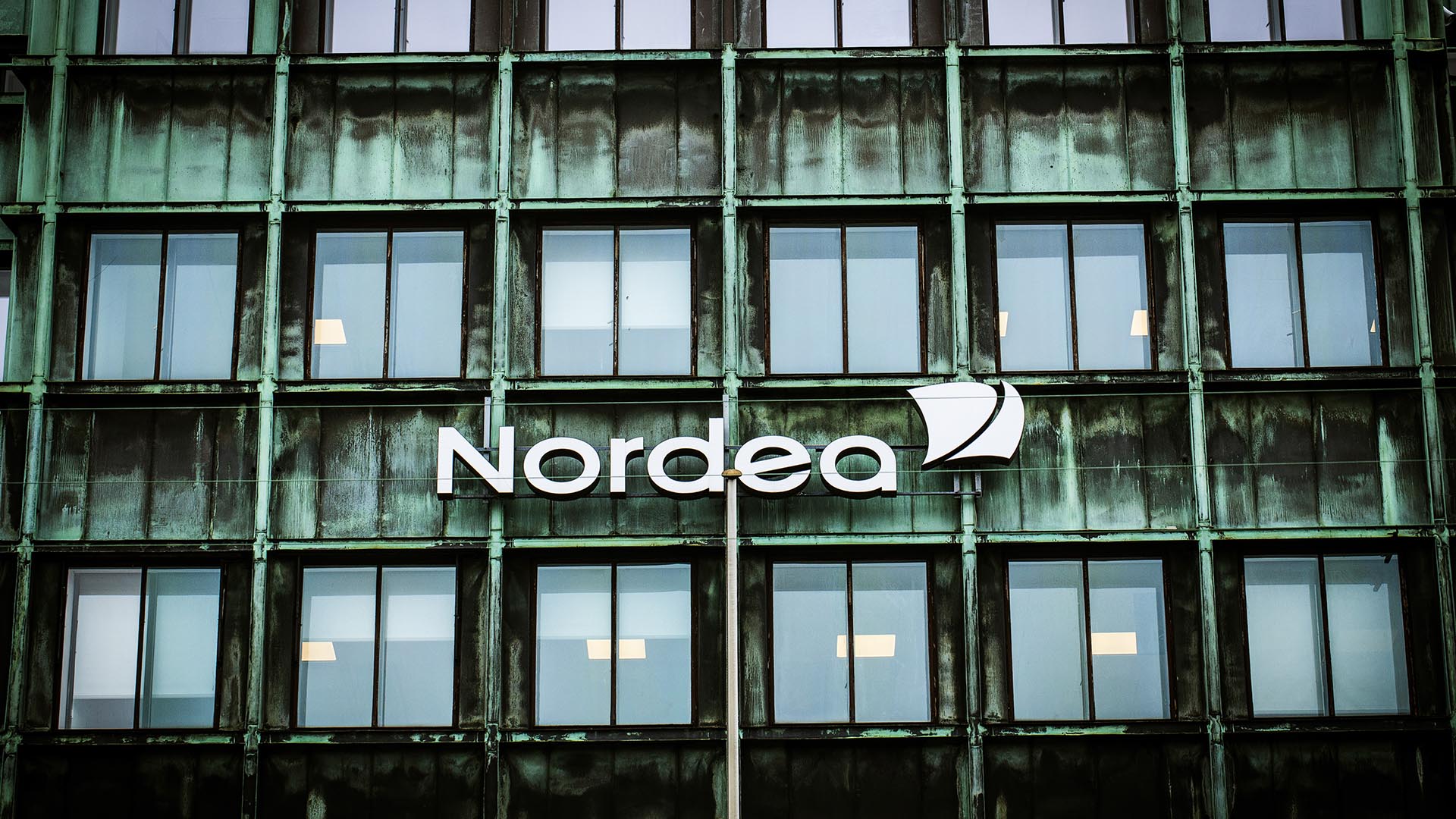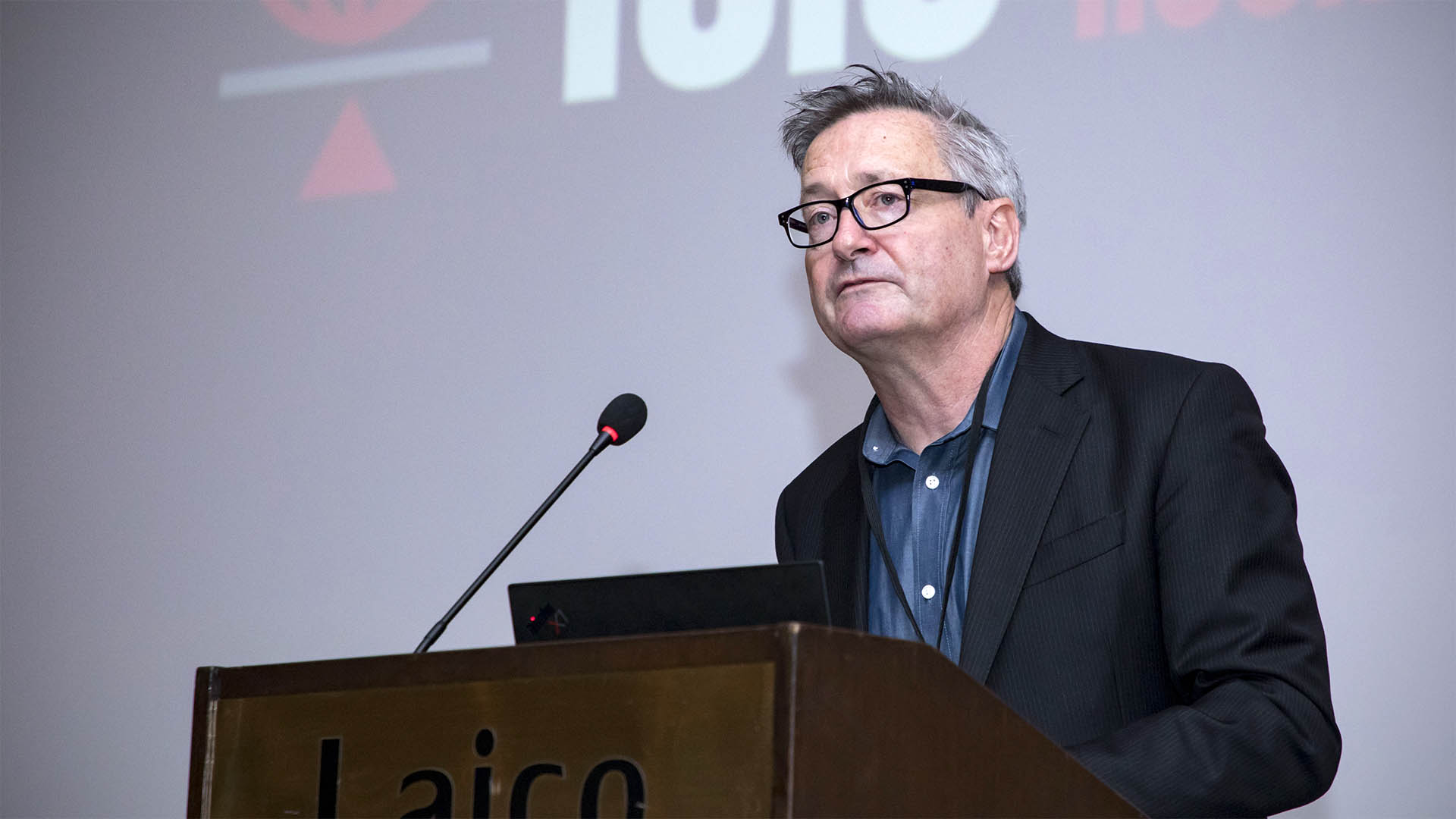Companies making use of offshore secrecy include firm that supplied surveillance software used by repressive regimes.
A number of so-called nominee directors of companies registered in the British Virgin Islands (BVI) have connections to military or intelligence activities, an investigation has revealed.
In the past, the British arms giant BAE was the most notorious user of offshore secrecy. The Guardian in 2003 revealed the firm had set up a pair of covert BVI entities.
The undeclared subsidiaries were used to distribute hundreds of millions of pounds in secret payments to get overseas arms contracts.
Today the investigation by the International Consortium of Investigative Journalists and the Guardian uncovers the identities of other offshore operators.
Louthean Nelson owns the Gamma Group, a controversial computer surveillance firm employing ex-military personnel. It sells bugging technology to Middle East and south-east Asian governments.
Nelson owns a BVI offshore arm, Gamma Group International Ltd.
Gamma’s spyware, which can be used against dissidents, has turned up in the hands of both Egyptian and Bahraini state security police, although Nelson’s representative claims this happened inadvertently.
He initially denied to us that Nelson was linked to Gamma, and denied that Nelson owned the anonymous BVI affiliate.
Martin Muench, who has a 15 per cent share in the company’s German subsidiary, said he was the group’s sole press spokesman, and told us: “Louthean Nelson is not associated with any company by the name of Gamma Group International Ltd. If by chance you are referring to any other Gamma company, then the explanation is the same for each and every one of them.”
After he was confronted with evidence obtained by the ICIJ/Guardian investigation, Muench changed his position. He told us: “You are absolutely right, apparently there is a Gamma Group International Ltd.”
He added: “So in effect I was wrong – sorry. However I did not say that Louthean Nelson was not associated with any Gamma company, only the one that I thought did not exist.”
Nelson set up his BVI offshoot in 2007, using an agency, BizCorp Management Pte, located in Singapore. His spokesman claimed the BVI company was not involved in sales of Gamma’s “Finfisher” spyware. But he refused to disclose the entity’s purpose.
Earlier this year, computer researchers in California told the New York Times they had discovered Finfisher being run from servers in Singapore, Indonesia, Brunei, Mongolia and a government ministry in Turkmenistan. The spying software was previously proved to have infected the computers of political activists in Bahrain, which Louthean Nelson visited in June 2006.
The Finfisher progamme is marketed as a technique for so-called “IT intrusion”. The code disguises itself as a software update or an email attachment, which the target victim is unaware will transmit back all his or her transactions and keystrokes.
Gamma calls itself “a government contractor to state intelligence and law enforcement agencies for … high-quality surveillance vans” and telephone tapping of all kinds.
Activists’ investigations into Finfisher originally began in March 2011, after protesters who broke into Egypt’s state security headquarters discovered documents showing the bugging system was being marketed to the then president Hosni Mubarak’s regime, at a price of $353,000.
Muench said demonstration copies of the Finfisher software must have been “stolen”. He refused to identify Gamma’s customers.
Nelson’s father, Bill Nelson, is described as the CEO of the UK Gamma, which sells a range of covert surveillance equipment from a modern industrial estate outside Andover in Hampshire, near the family home in the village of Winterbourne Earls.
In September this year, the German foreign minister, Guido Westerwelle, called for an EU-wide ban on the export of such surveillance software to totalitarian states. “These regimes should not get the technical instruments to spy on their own citizens,” Westerwelle said.
The UK has now agreed that future Finfisher exports from Andover to questionable regimes will need government permission.
Other types of anonymous offshore user we have identified in this area include a south London private detective, Gerry Moore, who operated Swiss bank accounts. He did not respond to invitations to comment.
Another private intelligence agency, Ciex, was used as a postbox by the financier Julian Askin to set up a covert entity registered in the Cook Islands, called Pastech. He too did not respond to invitations to comment.
An ex-CIA officer and a South African mercenary soldier, John Walbridge and Mauritz Le Roux, used London agents to set up a series of BVI-registered companies in 2005, after obtaining bodyguarding contracts in Iraq and Afghanistan. Le Roux told us one of his reasons was to accommodate “local partnerships” in foreign countries. Walbridge did not respond.
A former BAE software engineer from Hull, John Cunningham, says he set up his own offshore BVI company in the hope of selling helicopter drones for purely civilian use.
Now based in Thailand, he previously designed military avionics for Britain’s Hawk and Typhoon war planes.
He told us: “That account was set up by my ‘friend’ in Indonesia who does aerial mapping with small UAVs [unmanned aerial vehicles]. He was going to pay me a commission through that account … However, this was my first attempt to work in Asia and as I have found, money tends to be not forthcoming. I have never used that account.”
The military and intelligence register
Gerry Moore
Company: GM Property Developments, LHM Property Holdings
Story: South London private detective sets up BVI companies with Swiss bank accounts
Details: Moore founded “Thames Investigation Services”, later “Thames Associates”, in Blackheath, south London. He opened a Swiss bank account with UBS Basel in 1998. In 2007, he sought to open another account with Credit Suisse, Zurich, for his newly-registered BVI entity GM Property Developments. He sought to register a second offshore company, LHM Property Holdings, using his wife Linda’s initials.
Intermediary: Netincorp. BVI (Damien Fong)
Comment: No response. Thames Associates website taken down after Guardian approaches.
John Walbridge and Mauritz Le Roux
Companies: Overseas Security & Strategic Information Ltd, Remington Resources (Walbridge), Safenet UXO, Sparenberg, Gladeaway, Maplethorpe, Hawksbourne (Le Roux)
Story: Former CIA officer and South African ex-mercenary provide guards in Iraq and Afghanistan
Details: John H Walbridge Jr says he served with US special forces in Vietnam and then with the CIA in Brazil. His Miami-based private military company, OSSI Inc teamed up with South African ex-soldier and Executive Outcomes mercenary Mauritz Le Roux to win contracts in Kabul in 2005. Walbridge set up his 2 BVI entities with his wife Cassandra via a London agency in June and August 2005, and Le Roux incorporated 5 parallel BVI companies.
Intermediary: Alpha Offshore, London
Comment: Le Roux told us some of his offshore entities were kept available “in case we need to start up operations in a country where we would need to have local partnerships”. His joint venture with OSSI was based offshore in Dubai, he said, but used BVI entities ” to operate within a legal framework under British law, rather than the legal framework of the UAE”. Walbridge did not respond to invitations to comment.
Julian Askin
Company: Pastech
Story: Businessman used private intelligence agency to set up covert offshore entity in the Cook Islands
Details: Askin was a British football pools entrepreneur. He alleged Afrikaner conspiracies against him in South Africa, when his Tollgate transport group there collapsed. The apartheid regime failed to have him extradited, alleging fraud. He hired the Ciex agency to report on ABSA, the South African bank which foreclosed on him. Ciex was founded by ex-MI6 senior officer Michael Oatley along with ex-MI6 officer Hamilton Macmillan. In May 2000, they were used to help set up Pastech for their client in the obscure Pacific offshore location of Rarotonga, in the Cook Islands, with anonymous nominee directors and shareholders. Askin now lives in Semer, Suffolk.
Intermediary: Ciex, Buckingham Gate, London
Comment: He did not respond to invitations to comment.
Louthean Nelson
Company: Gamma Group International
Story: Gamma sells Finfisher round the world, spying software which infects a target’s computer.
Details: Nelson set up a UK company in 2007 on an Andover industrial estate, to make and sell Finfisher – a so-called Trojan which can remotely spy on a victim’s computer, by pretending to be a routine software update. He set up a parallel, more covert company with a similar name, registered in the BVI, via an agency in Singapore, using his father’s address at Winterbourne Earls, near Andover. He also sells to the Middle East via premises in Beirut. He ran into controversy last year when secret police in Egypt and Bahrain were alleged to have obtained Finfisher, which he denies knowingly supplying to them.
Intermediary: Bizcorp Management Pte Ltd, Singapore
Comment: His spokesman declines to say what was the purpose of the group’s BVI entity.
John Cunningham
Company: Aurilla International
Story: Military avionics software engineer from Hull with separate UK company, launches civilian venture in Indonesia
Details: Cunningham set up a BVI entity in 2007. His small UK company, On-Target Software Solutions Ltd has worked on “black boxes” for BAE Hawk and Typhoon warplanes, and does foreign consultancy. He also has interests in Thailand in a drone helicopter control system.
Intermediary: Allen & Bryans tax consultants, Singapore
Comment: Cunningham says the offshore account was never activated. “I actually make systems for civilian small UAVs (unmanned aerial vehicles). I have never sold to the military. That account was set up by my ‘friend’ in Indonesia who does aerial mapping with small UAVs. He was going to pay me a commission through that account”.
David Leigh is a member of ICIJ. This story was also published in The Guardian.



